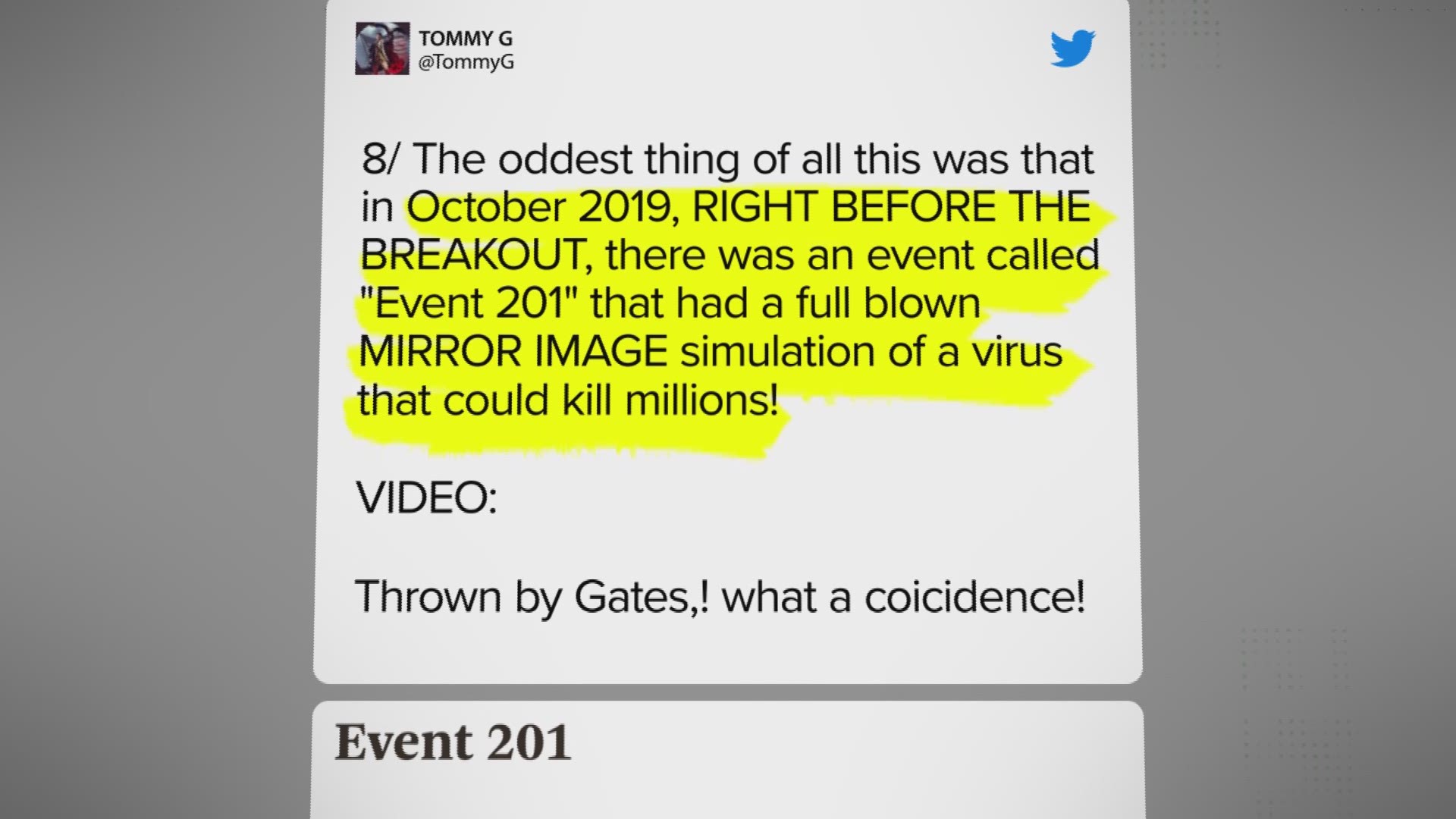Fears regarding the outbreak of the new coronavirus, which causes COVID-19, has led to a lot of rumors circulating online.
There are so many claims popping up each day that VERIFY is compiling a week’s worth of coronavirus fact-checks every Friday. That way, you can easily find every fact-check the team has made about the coronavirus every week.
Here are the fact-checks for the week of April 17:
Masks should be sanitized in the washing machine instead of the microwave
Some social media users claimed the best way to sanitize your cloth masks is to microwave them after each use. But that’s unnecessarily dangerous. The CDC recommends frequently running them through your washing machine depending on frequency of use.
"Event 201" was an exercise to prepare for a pandemic
It’s true that Johns Hopkins hosted a simulation with world leaders called Event 201 that simulated a coronavirus pandemic a few months prior to an actual coronavirus pandemic in the real world. However, this wasn’t some kind of prediction. It was the fourth such pandemic simulation event Johns Hopkins has hosted since 2001, and they used a coronavirus in their model because they based their fictional virus on SARS and MERS. The virus in the simulation and the virus that spread in the real world are different with different symptoms and effects.
Gloves don’t make you any safer in public
Gloves can become easily contaminated like other surfaces. Neither the CDC nor the WHO recommend glove use for the general public, and the WHO even warns that if you touch your face with a contaminated glove, you could get sick. The best practice is to wash your hands regularly and not touch your face unless you’ve just washed your hands.
You don’t have to pay back your stimulus check, but it can be garnished
You won’t have to pay back your stimulus check in your taxes next year. Whether you’re getting a refund or owe taxes won’t make a difference. However, private debt collectors and banks can garnish your check, which is a process in which they seize the money to pay debts. The money can also be taken to pay back past due child support payments.
RELATED: VERIFY: Is the IRS site safe? Will I have to pay back my check? And other common stimulus questions.
RELATED: VERIFY: Will I have to pay to get the money? Answering more of the top stimulus check questions.
Have something you'd like VERIFIED? Click here to submit your story.

